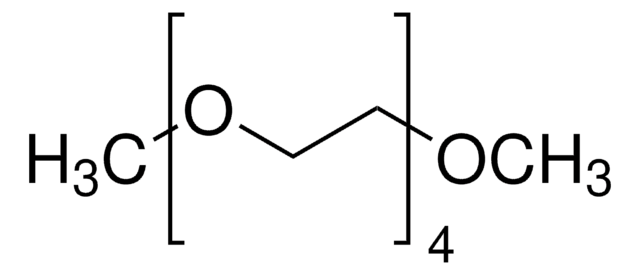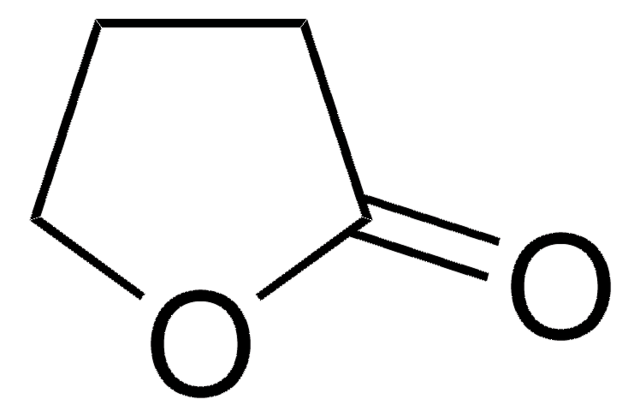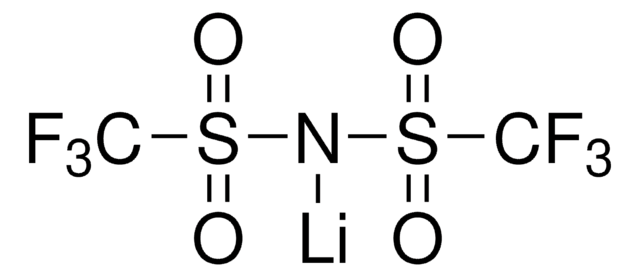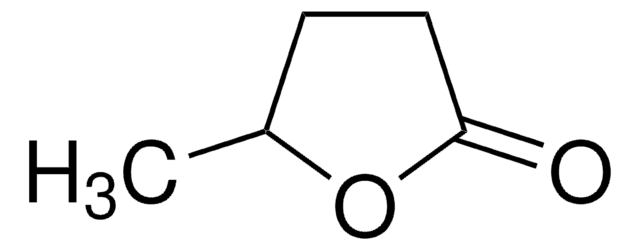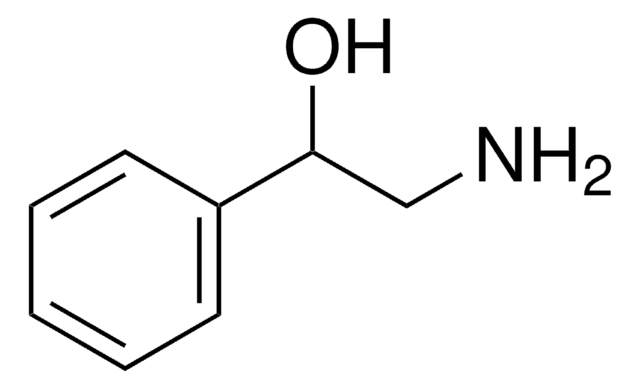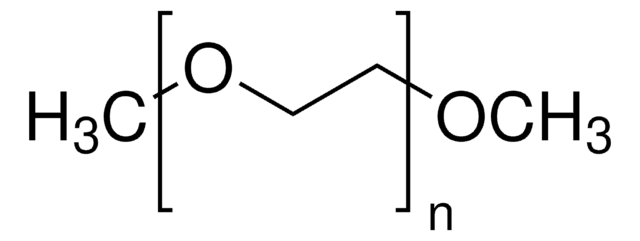02659
Tetraethylene glycol dimethyl ether
analytical standard
Synonyme(s) :
2,5,8,11,14-Pentaoxapentadecane, Bis[2-(2-methoxyethoxy)ethyl] ether, Dimethoxytetraethylene glycol, Dimethyltetraglycol, Tetraglyme
About This Item
Produits recommandés
Qualité
analytical standard
Niveau de qualité
Densité de vapeur
7.7 (vs air)
Pression de vapeur
<0.01 mmHg ( 20 °C)
Essai
≥99.7% (GC)
Température d'inflammation spontanée
510 °F
Durée de conservation
limited shelf life, expiry date on the label
range of application measuring range
≤60 °C
Indice de réfraction
n20/D 1.432 (lit.)
n20/D 1.432
pb
275-276 °C (lit.)
Pf
−30 °C (lit.)
Densité
1.009 g/mL at 25 °C (lit.)
Application(s)
environmental
Format
neat
Chaîne SMILES
COCCOCCOCCOCCOC
InChI
1S/C10H22O5/c1-11-3-5-13-7-9-15-10-8-14-6-4-12-2/h3-10H2,1-2H3
Clé InChI
ZUHZGEOKBKGPSW-UHFFFAOYSA-N
Vous recherchez des produits similaires ? Visite Guide de comparaison des produits
Description générale
Application
Mention d'avertissement
Danger
Mentions de danger
Conseils de prudence
Classification des risques
Repr. 1B
Risques supp
Code de la classe de stockage
6.1C - Combustible acute toxic Cat.3 / toxic compounds or compounds which causing chronic effects
Classe de danger pour l'eau (WGK)
WGK 1
Point d'éclair (°F)
276.8 °F - closed cup
Point d'éclair (°C)
136 °C - closed cup
Équipement de protection individuelle
Eyeshields, Faceshields, Gloves, type ABEK (EN14387) respirator filter
Listes réglementaires
Les listes réglementaires sont principalement fournies pour les produits chimiques. Seules des informations limitées peuvent être fournies ici pour les produits non chimiques. L'absence d'indication signifie qu'aucun des composants n'est répertorié. Il incombe à l'utilisateur de s'assurer de l'utilisation sûre et légale du produit.
EU REACH SVHC Candidate List
EU REACH Annex XVII (Restriction List)
Faites votre choix parmi les versions les plus récentes :
Certificats d'analyse (COA)
Vous ne trouvez pas la bonne version ?
Si vous avez besoin d'une version particulière, vous pouvez rechercher un certificat spécifique par le numéro de lot.
Déjà en possession de ce produit ?
Retrouvez la documentation relative aux produits que vous avez récemment achetés dans la Bibliothèque de documents.
Les clients ont également consulté
Notre équipe de scientifiques dispose d'une expérience dans tous les secteurs de la recherche, notamment en sciences de la vie, science des matériaux, synthèse chimique, chromatographie, analyse et dans de nombreux autres domaines..
Contacter notre Service technique